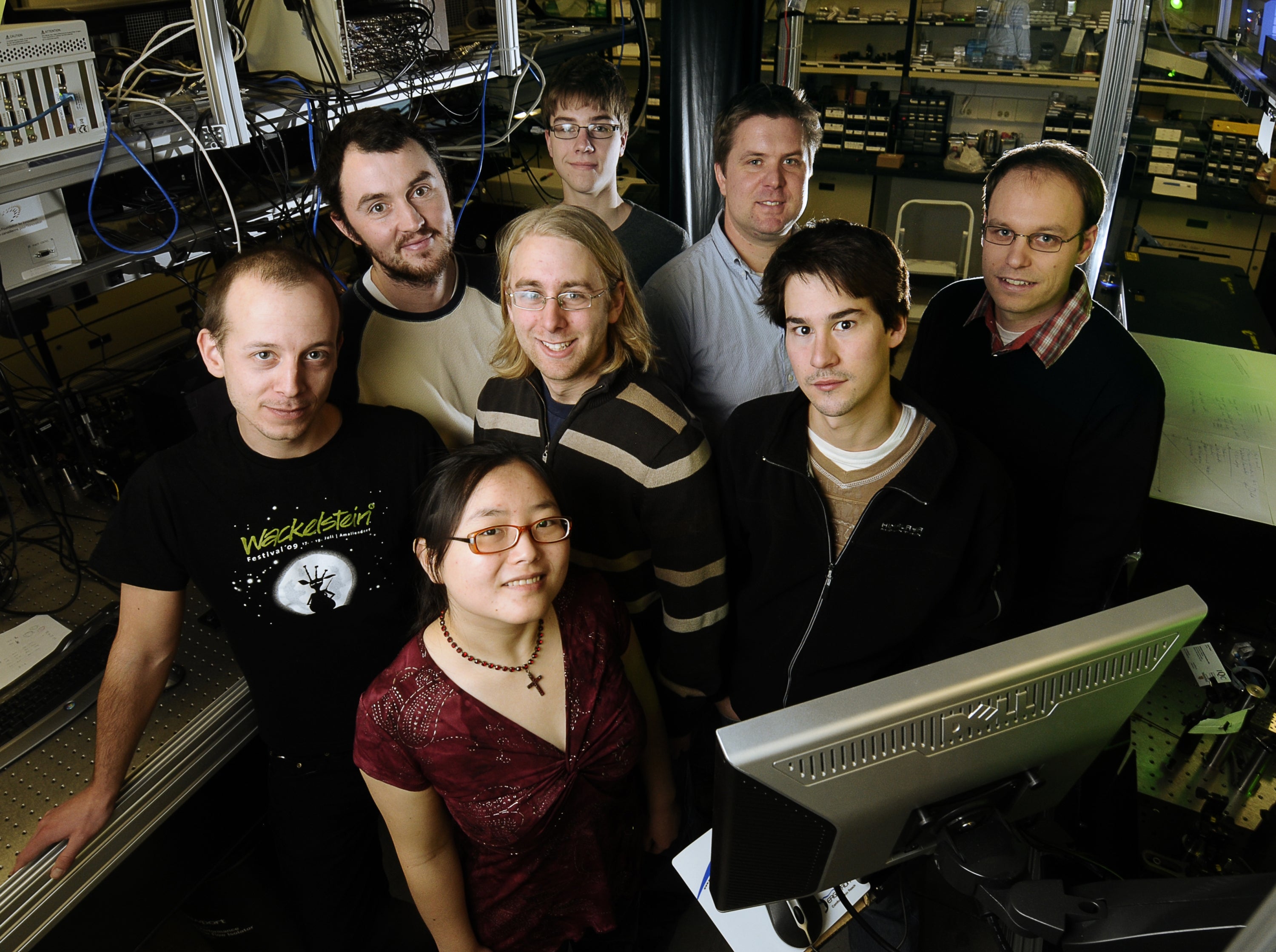IQC researchers explore a quantum advantage to communications in a new Physical Review Letters paper.

While entanglement cannot itself be used to communicate, the IQC optics researchers demonstrated that one can transmit information over a certain channel with higher success when using entanglement than with the means available in classical physics.
The research team — Robert Prevedel, Yang Lu, Rainer Kaltenbaek, Will Matthews and Kevin Resch — published their results in the March 14 edition of Physical Review Letters.
In a commentary article published in Physics, writer Mark Wilde explains the experiment in terms of a game show, on which a pair of contestants named Alice and Bob play a game called “Guess That Button.” To win a date with Alice at a nice restaurant, Bob must guess which button Alice has randomly pushed on a board with four coloured buttons.
While the board offers hints as to which button Alice pushed, ultimately Bob is clueless as to exactly which button Alice has pushed — unless, that is, the rules of the game are changed from classical to quantum.
The IQC researchers demonstrated a scenario in which Alice and Bob stand a much greater chance of winning the game by sharing entangled photons in advance.
The game show analogy illustrates a “noisy classical communication channel,” over which communication between Alice and Bob is markedly improved by using entanglement.
"The fact that entanglement can be used in this way was only recently recognized," said Will Matthews, an IQC postdoctoral fellow and co-author of the paper. "It was great to be able to work with the optics researchers at IQC to demonstrate it experimentally so soon. I am currently working to understand theoretically just how useful entanglement can be in this context."